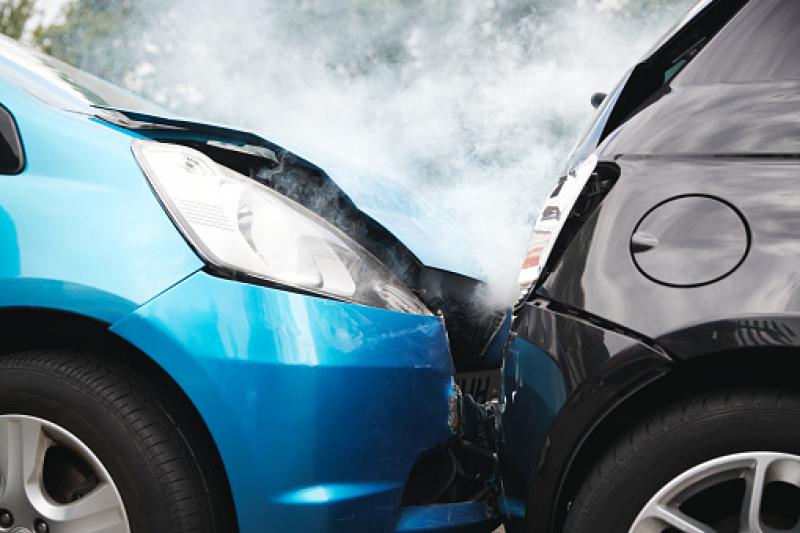
We know insurance write-offs can be confusing. We’ve broken down what a write-off actually is, how to buy a written-off car and how to insure one.
What is a write-off?
When it comes to car or van insurance, a write-off (sometimes known as a ‘total loss’) is when your vehicle is damaged so badly that:
- it’s not safe to drive anymore
- it costs more to repair than the car is worth
If the repairs cost more than half of the vehicle's value, your insurer might decide to keep it.
How do insurers decide if my car’s a write-off?
If you’ve been in an accident or your car or van’s been damaged, the first step is to make a claim.
Once you’ve done that, we’ll either:
- ask for photos of the damage for an expert to look at
- send out an expert to have a look themselves
If the cost of repairs is too high, your vehicle will be written off. We’ll then pay you the market value of it, minus your insurance excess.
Write-off categories
Once we’ve decided your vehicle’s a write-off, an assessor will evaluate it. They’ll put it into one of four categories, depending on how bad the damage is.
The category your car or van falls into determines what will happen to it in the future:
- A – it can’t be repaired or recycled in any way and has to be crushed without any parts removed.
- B – it can’t be repaired, but any usable parts of the car can be recycled.
- S (used to be known as Category C) – it's repairable but took damage to the frame or chassis that the insurer has decided not to repair.
- N (used to be known as Category D) – it's repairable and didn’t take damage to the frame or chassis, but the insurer decided not to repair the car. These vehicles might still have important safety features that need to be repaired.
Find out more about the different types of write-offs and what they could mean for you.
I’ve written off my car but it’s on finance
If your written-off car or van was on finance, it can be slightly tricky.
Your insurer will pay the finance company the value of the vehicle at the time of the incident, as they’re technically the owners. But, that might be less than what you borrowed.
That’s because you might have built up interest as part of your finance agreement, or because of other market conditions that mean the value of your car has gone down.
If that’s the case, you might have to pay the finance company the difference out of your own pocket.
Call your finance company as soon as you can after your car’s been written off. The sooner they know, the sooner you can find out what your options are.
Gap insurance
Gap insurance could help take some of the financial stress away if your car or van is a write-off.
It covers the difference between what your insurer pays out and what you owe the finance company.
Buying your own write-off back
After your car or van’s been declared a write-off, you can choose to buy it back from your insurer. If you want to do that, tell your insurer as early as possible.
This means you can keep the vehicle for an agreed amount of money. But it also means you’re in charge of repairing it and getting it roadworthy again.
You’ll need to re-register Category S vehicles with the DVLA.
Heads up – when your insurer records a vehicle as a write-off, they’ll cancel your policy straight away. You should get a refund for the rest of the cost of your insurance.
If you’re with us and there’s at least 24 days left on your policy, you can choose to re-activate it. That means you can keep your cover for the rest of the year, just with a new car or van instead.
Should I buy a previously written-off vehicle?
If you’re looking for a cheap deal, it might be tempting to buy a vehicle that’s been written off before.
They’ll likely be valued a lot less than vehicles of the same make and model that haven’t been involved in an accident.
But the obvious thing to consider is that you’ll need someone to inspect and repair the car or van to make sure it’s safe to drive.
The cost of paying for the work could be more than what you would have paid for another vehicle in the first place.
If it was a category S or N write-off, it’ll always be marked as previously written-off before it’s sold. That marker stays on the vehicle regardless of how well it’s repaired.
That means it’ll reduce the resale value of your vehicle if you do want to sell it on yourself.
Is it difficult to insure a previously written-off vehicle?
At Admiral, we don’t ask for your car or van’s accident history, whether you’re a new or existing customer.
The fact it’s a recovered write-off won’t have an impact on the price of your insurance.
Although that’s good news if you’ve bought a Category S or N car, remember we’ll still look at its history if you need to make a claim.
Price comparison websites also don’t ask if your vehicle is a write-off or what category it was in, but some insurers might.
As always, make sure your ride is fully repaired and roadworthy before you look to insure the car.


